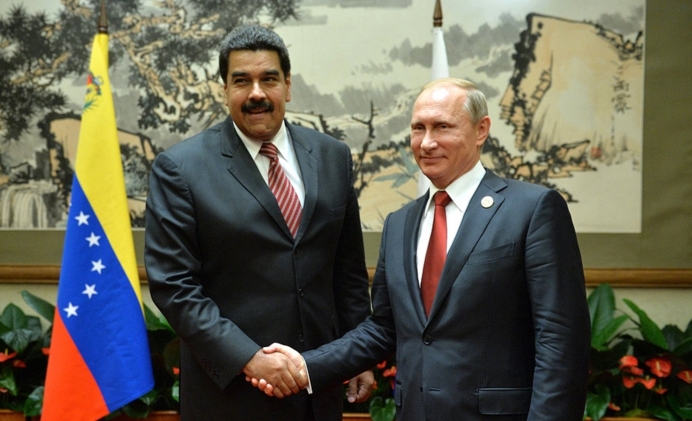IMF reveals that cryptocurrency Is The New World Order End Game
11/21/2018 / By News Editors

There are two kinds of globalist schemes: First, there are the schemes they spring on the public out of nowhere haphazardly in the hopes that the speed of the event along with some shock and awe will confuse the masses and make them psychologically pliable. This strategy loses effectiveness quickly, though; the longer the plan takes to implement, the more time the people have to reconsider what is actually happening and why.
(Article by Brandon Smith republished from Alt-Market.com)
Second, there are schemes they slowly implant in the collective psyche of the citizenry over many years, much like subliminal messaging or hypnosis. This strategy is designed to make the public embrace certain destructive ideologies or ideas as if these ideas were their own.
The cryptocurrency scam is of the second variety.
I have been suspicious of the cryptocurrency narrative of a “decentralized and anonymous monetary revolution” since 2009, when I was first approached by people claiming to be “representatives” of bitcoin and asked to become a promoter of the technology. After posing a few very simple questions and receiving no satisfactory answers, I declined to join the bandwagon or act as a frontman.
The “currency” was backed by nothing tangible (and no, math is not a tangible resource). Anyone could create a cryptocurrency out of thin air that had attributes identical to bitcoin, therefore there was no intrinsic value to the technology and nothing stopping the creation of thousands of similar currency systems, eventually making bitcoin worthless. The scarcity argument for crypto was fraudulent. And, in the event of a grid down or an internet lock-down scenario (as has occurred in the past in nations under crisis), crypto was useless because the blockchain ledger was no longer accessible.
Trading with private wallets made little sense; how many people were you likely to run into in your community with a bitcoin wallet? The amount of time and energy required to accumulate these digital nothings seemed counterproductive to me in light of the fact that they might not be there when you actually needed them.
The only attributes that truly made bitcoin valuable were its branding and the amount of hype that was generated around it. But branding and hype are not enough to sustain a currency revolution. There was one other valuable characteristic — the supposed anonymity. In 2009, it was not clear whether this was legitimate. Today we now know that ANY cryptocurrency that is based on a blockchain ledger is highly traceable. There are no anonymous digital transactions no matter how savvy a person thinks they are.
I was also suspicious of the behavior of some bitcoin proponents in web forums. Anyone presenting concrete criticism of the technology was met with aggressive Alinsky-style attacks. They were accused of being “ignorant barbaric gold stackers” that were too stupid to understand the “genius” of the blockchain and how it works. Disinformation was rampant. Claims of anonymity that had long been debunked were brought up over and over again. The value of bitcoin was faunted as an end-all-be-all argument as to why the critics were wrong. Bitcoin’s price was skyrocketing; therefore, bitcoin was legit.
These were the kinds of tactics I had seen used by disinfo agents in the past; people arguing in favor of the Federal Reserve or globalism in general, or the people claiming that man-made global warming was “self-evident”. This was not the behavior I had come to expect from liberty movement activists, who at that time were focused on facts and evidence to win the information war, rather than dishonest mind games and lies.
Conclusion — there was a concerted campaign to push liberty activists through “peer pressure” to adopt a pro-crypto stance. But who actually benefits from this?
Some investors in crypto made a considerable profit on bitcoin and other digital assets for a time, but today many of them are losing their shirts as bitcoin and most coins tumble in value. It is perhaps no coincidence that cryptocurrencies act as though they are anchored to the tech bubble in stock markets. As tech stocks flail and plummet, so too are crypto assets, because cyrptocurrencies are traded like equities in a bubble, not monetary mechanisms. Many of us who were averse to the bitcoin hype train often used the Dutch tulip analogy for why crypto valuations were absurd, and obviously that analogy was not far from the mark.
I wonder sometimes about the people who used to argue that bitcoin’s high value made its legitimacy self-evident; would they now concede with bitcoin’s plunging value that its legitimacy was in question? I’m guessing they probably won’t.
Read more at: Alt-Market.com
Tagged Under: bitcoin, Collapse, community, cryptocurrency, currency, debt, economic collapse, end game, Globalism, government, IMF, International Monetary Fund, internet, new world order, Orwellian, politics, society, surveillance, tech bubble
RECENT NEWS & ARTICLES
COPYRIGHT © 2018 CRYPTOCULT.NEWS
All content posted on this site is protected under Free Speech. CryptoCult.news is not responsible for content written by contributing authors. The information on this site is provided for educational and entertainment purposes only. It is not intended as a substitute for professional advice of any kind. CryptoCult.news assumes no responsibility for the use or misuse of this material. All trademarks, registered trademarks and service marks mentioned on this site are the property of their respective owners.


















